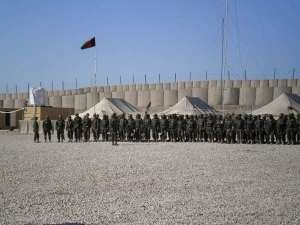The vote of confidence granted to the new Government does not mean true support from the Parliament, which will have at any time the ability to obstruct the initiatives of the new ministers, according to the CAIET analysts.
In their opinion, several measures taken by the Ponta Government will need to be reformulated or cancelled to maintain the budget balance, which will create hostility among the citizens which would have benefited from them. "An association of the Cioloş cabinet with the notion of austerity- which is still emotionally relevant to some voter groups - can create strong electoral and social dynamics", CAIET analysts say, who mention that currently, president Klaus Iohannis is currently in the winning position, but in the short and medium term he will bear the cost of every mistake or unpopular measure which the Cioloş government adopts, but without having available all the necessary levers to maximize its performance.
• The PSD will attempt to damage the credibility of the Cioloş government, of Klaus Iohannis and of the PNL
Along with the new government, the PSD loses part of its power, as the funding of PSD mayors is seriously threatened in the coming months, according to the CAIET specialists, who are also saying that currently, it is unclear how many of the PSD members in the administration will be purged, and their removal from the administration could give the PSD the excuse for acting hostilely to the Cioloş government.
CAIET analysts also note the fact that it is for the first time in history that when a party that holds the majority in the Parliament, through alliances, goes into the opposition: "Social-democrats are forced to take a hostile stance towards the government for several reasons: the members of the party are shocked at the loss they suffered and at the scale of the street protests; the PNL does not offer a solid outlook in the end, to which the PSD can come up with a counter-offer; an important stake for the social-democrats is to prove that they are the only ones who can govern efficiently and coherently; the PSD can not allow any other major option than itself to gain credibility before next year's elections, regardless of whether it's Cioloş himself or his ministers. Thus, a predominantly conflict-ridden climate is prefiguring, in which the PSD and its affiliated voices in the media will attempt to discredit the Cioloş government and President Iohannis (and the PNL implicitly). A new option available to the social-democrats is the correlation with authentic left-wing groups, from outside the party or from within, which would prefigure a speech which is hostile to the government's right wing measures".
The CAIET analysts also say that the PSD will have to pass an interesting test before April, when the nominations for key-positions in the judicial system will take place: "The pressures from leaders with judicial problems - the ones that are still free at least - will be huge, to have the PSD initiate a vote of no-confidence before that date, meaning in February or March. Thus, a new government led by the PSD could sabotage, in April, the anti-corruption actions by supporting candidates that are unqualified or susceptible to blackmail. On the other hand, the current management of the PSD seems to have little interest in the sabotaging the current anti-corruption mechanisms. It can try to bring down the government before the budget law for 2016 or upon its passing, in order to later provide its mayors across the country with funds, but it is unclear whether Liviu Dragnea feels he is capable of such an undertaking".
• The PNL will alternate between supporting some of the government's measures and vehemently rejecting others
The National Liberal Party will be faced with quite a few difficult dilemmas, the CAIET specialists think, who add that it is to be expected that, like in 2015, the party will not follow a clearly defined strategy, alternating between supporting certain measures of the government and vehemently rejecting others. The CAIET study mentions: "Essentially, with the elections in mind, the liberals will want to be exclusively associated with the popular measures of the Cioloş government, but at the same time to register their disagreement with those that do not produce favorable political results for them, where the upcoming elections are concerned. This attitude - eminently rational - suffers from a lack of consistency which will be offset through absenteeism of some PNL voters in the Parliamentary elections.
Another possibility of expressing the same state, is in fact the fragmentation of the PNL when it comes to their positioning in relation to the new prime-minister, as the party will be speaking «based on several disparate voices » about the Cioloş government. This phenomenon is already happening.
In the long run, the PNL needs to prove that the Cioloş government is a failure. A popular government, having a valued leader who is also supported by the presidency, removes the need for the existence of the PNL as a major player on the political scene. The PNL is forced to see a technocratic government as a threat due to the intrinsic weak points of the party, which have remained unresolved in 2015. Ironically, such a positioning of the PNL is in line with that of the PSD, creating among the public the perception of the existence of the PSD+PNL vs. the President and the Government factions, and encouraging the formalization of a substantial political project from outside the two major political parties".
• Fringe movements can pick up speed following a mechanism similar to that of the year 2000
The already existing small parties - M10, The People's Movement - will have difficulties in relating to the developing political situation, according to the CAIET analysts, which state that verbally opposing the government makes them default partners of the PSD, and supporting the government makes them irrelevant as alternative to the current political scene.
Fringe movements can pick up speed following a mechanism similar to that of the year: a prime-minister without political strength, an economy with significant flaws, right-wing factions with a weak discourse, a president who is exposed without being a populist and a PSD which is more disciplined than its opponents, according to CAIET, which thinks that these movements can catch a political start with a significant speed - in 2000 the PRM party won 7% of the votes in the local elections and over 20% in the parliamentary elections - probably along anti-capitalist and Europhobic coordinates, depending on the priorities and the actions of the Cioloş government.
This week, the Cioloş government received the Parliament's vote of confidence, with the result being 389 votes "in favor", 115 "against" and two cancelled votes. President Klaus Iohannis wrote, on Facebook, that the vote of confidence of the Parliament's members is proof that the political parties have understood that a technocratic government is now the best solution for Romania.



























































